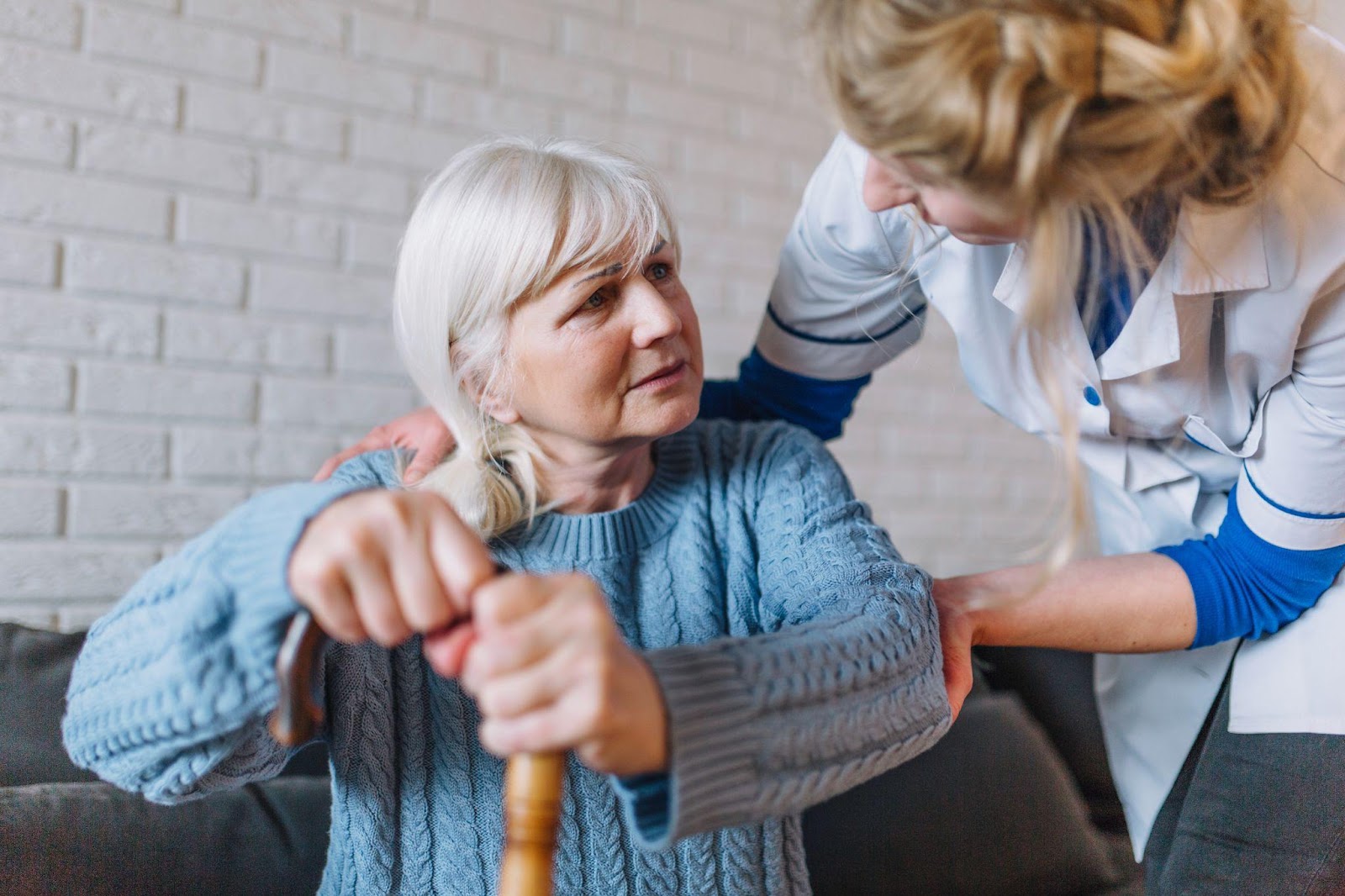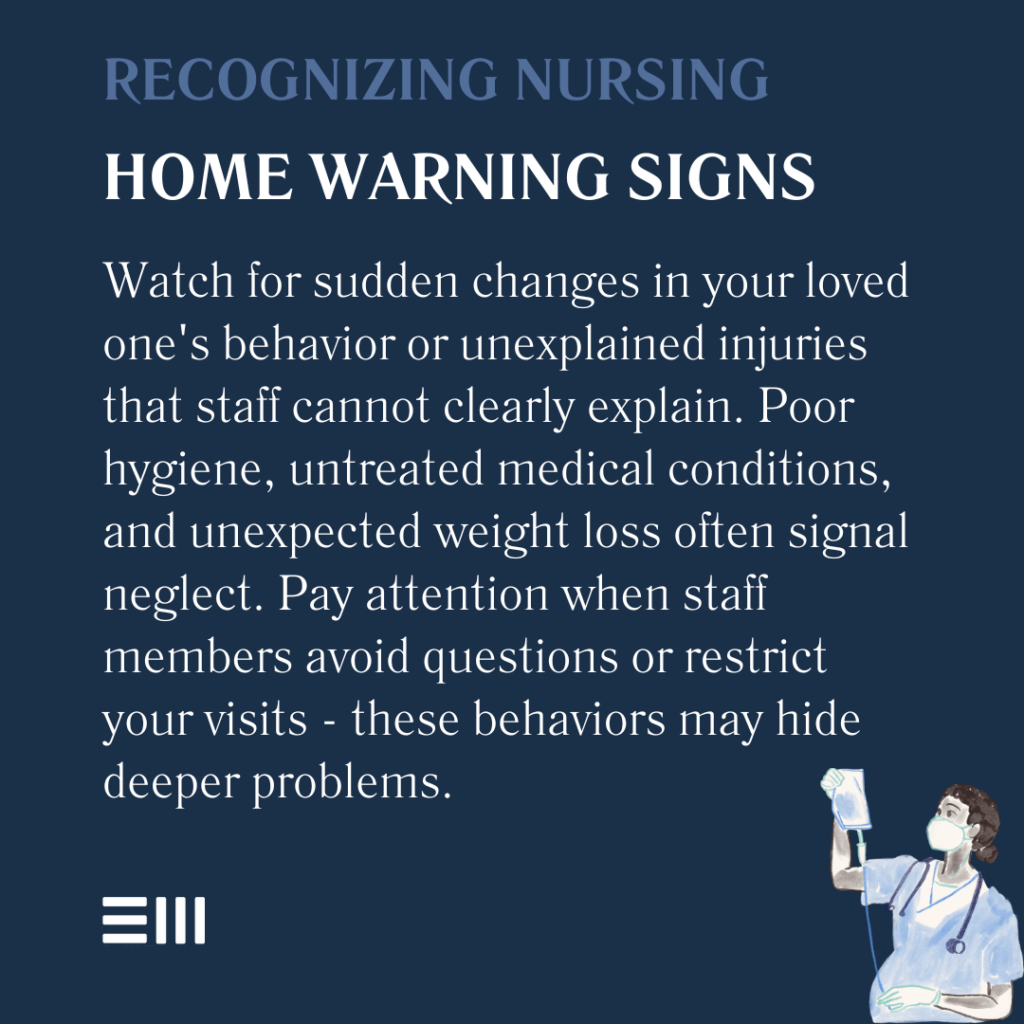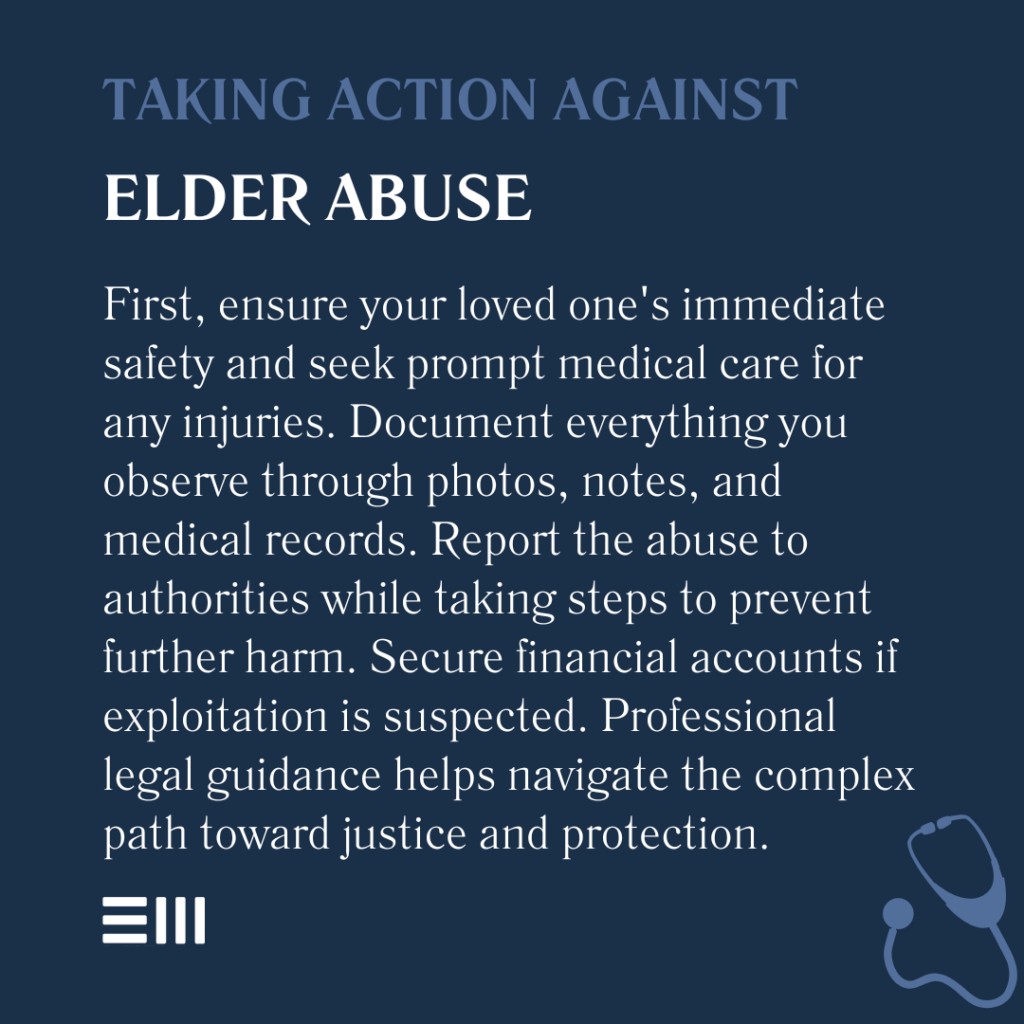
In the quiet corners of nursing homes and behind closed doors across Alabama, our elderly neighbors face battles that often go unseen.
A grandmother’s unexplained bruises, a father’s suddenly empty bank account, an aunt’s untreated bedsores—these silent signs tell stories of betrayal by those entrusted with their care.
Understanding Elder Abuse and Neglect
Elder abuse takes many forms, each leaving lasting impacts on our senior community members. Beyond the physical scars, this abuse creates deep emotional wounds that affect entire families.
The complexity of elder abuse cases often involves multiple caregivers, facilities, and even family members, making recognition and intervention particularly challenging.
Let’s explore how Alabama law protects our elderly population and what actions family members can take to protect their loved ones.
Types of Elder Abuse
Recognizing the signs of elder abuse helps protect vulnerable seniors.
Here are the primary forms of abuse encountered in Alabama:
- Physical abuse through force or restraint;
- Emotional or psychological manipulation;
- Sexual abuse and exploitation;
- Financial fraud and theft;
- Medical neglect or abandonment;
- Basic needs deprivation; and
- Social isolation and manipulation.
Understanding these different forms of abuse helps families identify and address potential harm to their loved ones.
Warning Signs in Nursing Homes
Nursing home abuse often presents subtle indicators that can be easily overlooked or dismissed. Family members serve as the first line of defense, making their observations crucial for protecting vulnerable residents.
Regular visits and careful attention to changes in both physical condition and behavior can reveal developing problems before they become severe.
Here are key warning signs to watch for:
- Unexplained injuries or bruising;
- Sudden behavioral changes;
- Poor hygiene or unsanitary conditions;
- Rapid weight loss or dehydration;
- Medication errors or omissions;
- Unexplained financial transactions; and
- Staff refusing family visits.
Recognizing these signs early allows for swift intervention and protection. Family members should trust their instincts—if something seems wrong, it likely deserves investigation.
Even small changes in a loved one’s condition or behavior may indicate more significant underlying issues that require attention.

Financial Exploitation
Financial abuse of elders often occurs gradually and systematically, making it particularly difficult to detect until significant damage has occurred.
Perpetrators frequently build trust over time, taking advantage of seniors’ isolation or cognitive decline. They may start with small, innocent transactions before progressing to larger exploitation.
Many victims feel shame or embarrassment, making them reluctant to report the abuse.
Let’s examine how perpetrators target seniors and ways to protect assets:
- Unauthorized use of accounts or cards;
- Forged signatures on documents;
- Coerced changes to wills or powers of attorney;
- Theft of valuable possessions;
- Fraudulent investment schemes;
- Identity theft and scams; and
- Misuse of joint accounts.
Understanding these tactics helps prevent financial exploitation before significant losses occur. Early intervention and regular monitoring of financial activities provide the best protection against these sophisticated forms of abuse.
Legal Protections in Alabama
Alabama law provides specific protections for elderly residents, recognizing their unique vulnerabilities and the need for enhanced safeguards.
These protections extend beyond basic criminal law to include special civil remedies and regulatory oversight of care facilities.
The state’s comprehensive approach combines preventive measures with strong enforcement mechanisms.
Consider these key legal safeguards:
- Adult Protective Services intervention rights;
- Mandatory reporting requirements;
- Enhanced criminal penalties;
- Civil recovery options;
- Guardianship provisions;
- Emergency protective orders; and
- Financial institution monitoring.
These legal tools create a framework for protecting vulnerable seniors and pursuing justice.
Understanding and utilizing these protections helps families advocate effectively for their loved one’s rights and well-being.
Frequently Asked Questions About Nursing Home Neglect in Alabama
Alabama family members often seek answers about protecting their elderly loved ones.
Here are responses to common concerns about elder abuse and exploitation.
How Can I Report Suspected Abuse?
Several reporting options exist to help protect vulnerable seniors, and each plays a distinct role in the response system. Understanding these different channels helps ensure your report reaches the right authorities and receives appropriate attention.
When reporting abuse, remember that multiple reports through different channels can create a stronger response:
- Adult Protective Services hotline;
- Local law enforcement;
- Long-term care ombudsman;
- State licensing boards;
- Healthcare providers; and
- Legal professionals.
Each reporting method activates different protective responses and investigations. The immediacy and severity of the situation should guide which reporting channels you choose to pursue first.
What Documentation Should I Keep?
Proper documentation strengthens cases against abusers and provides crucial evidence for investigators and legal proceedings.
Creating a clear record of incidents, observations, and concerns helps establish patterns of abuse or neglect that might otherwise go unnoticed. When documenting potential abuse, consistency and detail matter greatly.
Important records include:
- Photographs of injuries or conditions;
- Medical records and incident reports;
- Financial statements and transactions;
- Communication with facility staff;
- Witness statements;
- Video or audio recordings; and
- Personal observations and notes.
These records provide crucial evidence for both civil and criminal proceedings. Maintaining organized, detailed documentation helps build stronger cases and supports swifter intervention when needed.
How Can I Prevent Financial Exploitation?
Proactive measures help protect seniors’ assets from those who would take advantage of their trust or vulnerability. Prevention requires a combination of vigilance, proper legal documentation, and regular oversight.
Modern technology offers new tools for monitoring financial activity, while traditional legal protections remain essential.
Consider these preventive steps:
- Regular financial monitoring;
- Limited power of attorney;
- Joint account oversight;
- Professional financial management;
- Transaction alerts;
- Credit monitoring services; and
- Regular account audits.
These safeguards create barriers against financial predators while preserving seniors’ dignity and independence. Regular review and updating of these protective measures ensures they remain effective as circumstances change.
Steps to Take After Discovering Abuse
Quick action protects victims and preserves evidence. Here’s what to do immediately:
- Ensure immediate safety of the victim;
- Report to proper authorities;
- Document all evidence;
- Seek medical evaluation;
- Secure financial accounts;
- Contact legal representation; and
- Support emotional recovery.
Taking these steps creates a foundation for protection and justice.

Stand Against Elder Abuse Today
Your loved one deserves protection, dignity, and justice. Our experienced team understands the devastating impact of elder abuse and stands ready to fight for your family member’s rights.
Can't find what you're looking for? Search our site below.










